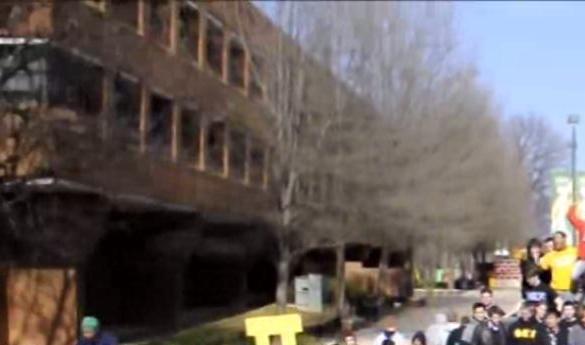Greek Week changes highlight community, philanthropy
This year’s larger Greek Week planning group made changes to the tone to of some events, trading wild Shackathon themes for a theme of unity in philanthropy among campus's Greek life.
Allen White, assistant director of Fraternity and Sorority Life in the Office of Student Involvement, stressed that this year’s event seeks to be “much more inclusive of [the] entire [Greek] community” and places a greater emphasis on the service aspects of both Greek Week and the Greek Community in general.
As a result, changes will be made to the annual "Shackathon" event, in which each Greek organization builds a makeshift shack to raise money for Habitat for Humanity.
In order to raise awareness of the homeless, this year’s shacks, which are normally constructed out of hardwood planks, will be built out of recyclable materials such as cardboard. These buildings will be much cheaper to construct, allowing more money to be sent to Habitat, according to White.
“We want to show the university that we’re not just about the whole party aspect and everything like that, we want to show a positive reinforcement that we’re all about philanthropy,” said Tom Gregan, a member of Kappa Alpha fraternity and student activities chair of the Interfraternity Council, in an interview with C2M.
The winner of Shackathon will not be the team that builds the best shack, but the team that raises the most money, according to Gregan.
This year’s Greek Week theme is “We may stand out, but we never stand alone,” which, according to Gregan, reflects the values of the Greek Community.
In the past, Greek Week sported such themes as Nickelodeon shows or video games. This year’s tone is more serious, focusing on a message of philanthropy and inclusivity among the Greek community.
The message of inclusivity extended to the planning process of Greek Week, with four Greek councils working on the event as opposed to the usual two. These were the Interfraternity Council, Panhellenic Council, National Pan-Hellenic Council, and Multicultural Greek Council.
Greek Week is planned by a steering committee that consists of members of these four councils. The process was restructured in order to be more inclusive and encourage members to mix and mingle with members of other councils, according to Allen White, assistant director of Fraternity and Sorority Life in the Office of Student Involvement.
In previous years only the Interfraternity Council and Panhellenic Council were involved in the planning of Greek Week.
“Greek Week is ever-changing, so we make it bigger [and] better for the university and how the university wants us to proceed with Greek Week,” said Gregan.
Greek Week also serves as a way to improve the general view of Greek organizations on campus, and White feels that the changes to this year’s event are “a step in the right direction.”
“The whole purpose of Greek Week is a time when everyone can come together and show the whole university what Greeks can do,” said White.
Greek Week begins on Sunday, March 25 and will continue until Saturday, March 31.

